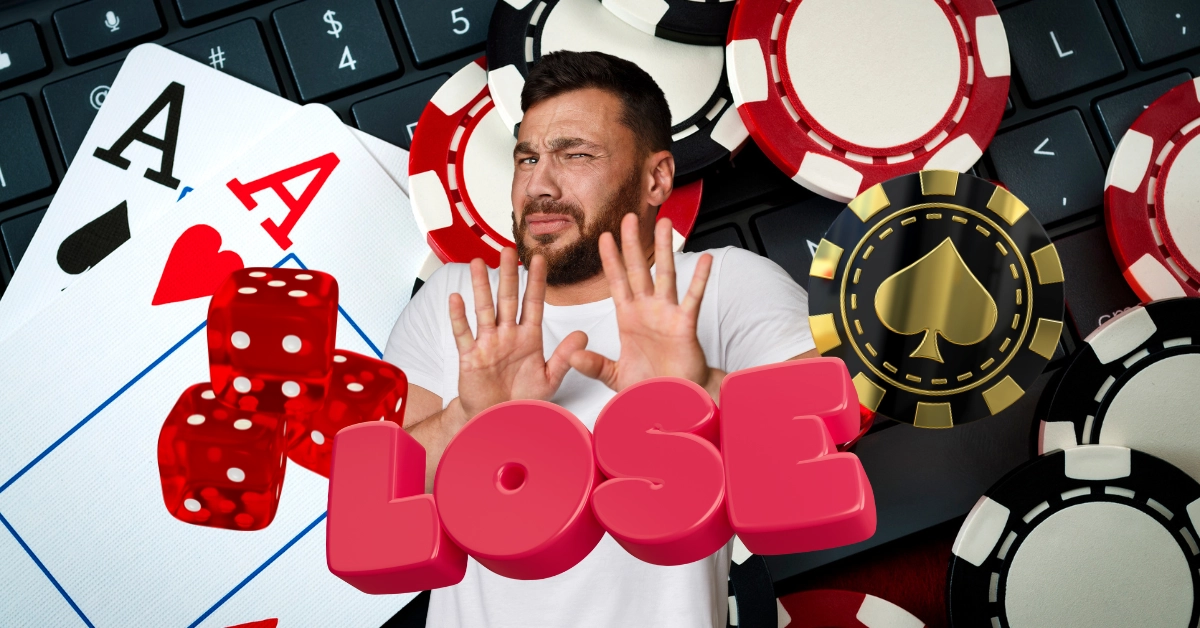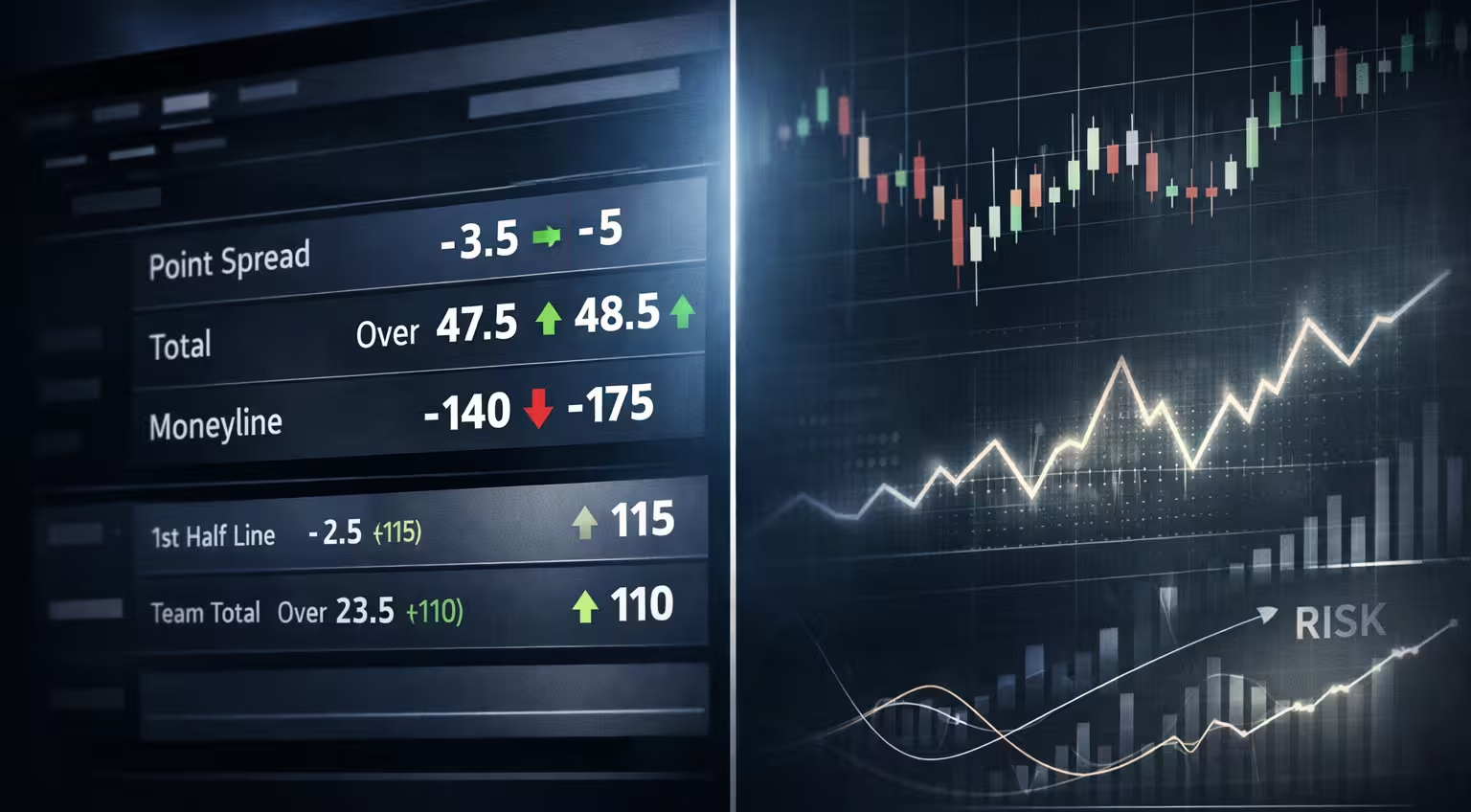The Science of Loss Aversion: How Our Brains React to Losing Streaks

Loss aversion is the cognitive bias where people consider the pain of losing twice as powerful as the pleasure that comes from gaining something, even when it comes to well-calculated risks. Loss aversion can play a crucial role in decision-making when it comes to gambling for some bettors and gamblers. This spells bad news, not only for the online or land-based casinos but also means that the gambler misses out on tremendous money-making opportunities because they are too nervous or hesitant to go out on a limb.
In this exploration of loss aversion and how it relates to gambling, we’ll highlight the psychological and neurological aspects of loss aversion in the context of losing streaks. Understanding loss aversion can help gamblers become more confident about taking well-calculated risks, make more informed decisions, and manage their emotions during losing streaks so they can thrive even in the midst of a slump.
What Is Loss Aversion?
Loss aversion occurs when people’s actions are more motivated by avoiding the pain of losing than by the pleasure they will get from winning or gaining something. In gambling, this might look like a player being nervous to stake $100 in a game in the hopes of winning another $100.
Think about losing $100 versus finding $100 on the street. Which one of these things would stir up a stronger response within you? For most people, the idea of losing $100 is far more painful and raw than the excitement one would have over finding $100. This is the essence of loss aversion, which is technically defined as the human tendency to avoid losses rather than acquire equivalent gains.

It doesn’t help that loss aversion strengthens as the stakes increase. So, while loss aversion can spare us from the pain of a significant loss, it can also prevent us from taking well-calculated risks with potential worthwhile returns.
An Example of Loss Aversion in Everyday Life
Clear examples of loss aversion can be found in activities like gambling, sports betting, stock trading, and investments, but it can also be seen in everyday life. We’ll run through an example of this concept to give you a better understanding of how this phenomenon presents itself.
ExamplePeople working the same job for years might only stick with it because it’s familiar, and they fear change. They could go for a job that might make them more money or have a better work environment. Still, they are hesitant to go for the opportunity because they have to deal with a period of change that involves learning new skills, navigating new relationships, or coming up with a different schedule. Even though the new job would benefit them greatly in several ways, they are nervous about making that change.
Loss Aversion vs. Risk Aversion
There’s another concept called risk aversion, and it might sound the same as loss aversion, but there are two completely different things. Whereas loss aversion has us valuing losses more than gains, risk aversion has us view losses and gains equally.
The best way to describe the difference between these two concepts is to give you the scenario of getting involved in a fair coin toss where you could possibly win or lose $100 based on which side of the coin you choose.
- People who display loss aversion tendencies will only see the bet as worth it if they can win more than $100 if they are correct, an amount like $150, for example.
- People who display risk aversion tendencies will still see the bet as worth it if all they can win is $100—they aren’t afraid to lose money if it means they could possibly earn $100 on a 50/50 bet.
The Psychology of Loss Aversion
What is it that makes people feel more strongly toward potential losses than potential gains? To answer this question, we’ll look over some psychological theories behind the phenomenon of loss aversion that have been posed over the years.
Prospect Theory (Kahneman & Tversky, 1979)
The prospect theory of behavioral economics describes how individuals assess their loss and gain perspectives unevenly. People generally avoid taking risks if there are significant potential losses because losses loom larger than gains. Even if it makes logical sense to take a risk because the potential reward is mainly worth the payoff, some people can’t be convinced to go for it for fear of losing, which overrides any gratification that one could get from winning.
This goes against the concept of expected utility theory, which doesn’t account for actual behavior or people and instead posits a model where people make rational decisions 100% of the time. In prospect theory, loss-averse people work off of a set reference point or status quo, which is subjective and different for different people in different scenarios.
The Sunk Cost Fallacy
This is the phenomenon of a person being hesitant to abandon their current strategy because they have invested time and effort in it. Even though it’s clear that cutting their losses would be the most beneficial move, this person feels that sticking with their current course of action is best because of their investment.
It’s this sunk cost fallacy that leads many gamblers into disaster. A key example would be someone continuing to gamble after a string of losses because they feel they can make their money back by upping their stake (chasing losses) or because the machine is due to pay out at any minute.
The main idea behind this is that the gambler is sticking with a poor investment of time and money because they don’t want to feel bad about losing or facing failure.
In essence, the sunk fallacy cost is the opposite of the prospect theory, where gamblers, stock traders, or sports bettors can irrationally avoid risks because they can’t deal with the prospect of losing money. With sunk cost, you’re still operating irrationally. Still, it’s the expectation that your luck will turn around and benefit you even though you’re not making the best decision or employing the best strategy.
The Endowment Effect
The behavioral psychology principle states that people are more likely to keep an object they own than to get it when they don’t. Your maximum willingness to pay to get a particular object is typically lower than the least amount you’d be willing to accept to give up that same object if you own it. Essentially, you’re operating from a place of entitlement and higher standards when you have a sense of ownership over something.
Endowment can significantly influence how we perceive wins and losses in gambling and losing streaks. There’s always some reference point that can either put things into perspective or skew our perspective of the situation.
To illustrate this idea further, let’s say you’re entering a drawing for $500 at your local casino. Only twenty names are called, and it was a slow night where only twenty people entered the drawing—this means you’re guaranteed to win $500, which excites you! But then there’s a change-up. One of the twenty names called gets an all-expenses-paid vacation to the Caribbean valued at 10,000. When your name isn’t called for the vacation, you’re disappointed even though you knew you would win $500, regardless. Your perspective was skewed due to the endowment effect!
The Neuroscience of Loss Aversion
The phenomenon behind loss aversion has its roots in different brain regions from which people’s ability to make decisions or feel fearful stems. This part of our guide will address the brain areas responsible for the emotional influences one might think in gambling. This should give you a clearer understanding of why you or someone you know might not be willing to take a risk for a worthwhile payoff.
The Amygdala and Emotional Processing
The amygdala is a part of the larger network of your brain known as the limbic system. This area of your brain detects danger and plays a vital role in your survival because the amygdala is known for controlling the fear emotion, specifically the fight or flight response that people experience when sensing danger or threats. The amygdala is also responsible for association learning and decision-making and setting the conditions for emotional expression.

Prefrontal Cortex and Decision-Making
This area of your brain, the prefrontal cortex, is the seat of willpower. The PFC is responsible for people being able to take the long-term perspective in evaluating or analyzing risks and rewards. The prefrontal cortex is in close contact with the emotional animal brain, alerting people to danger and where gratification is sought.
Nucleus Accumbens and Reward Processing
The nucleus accumbens is the area of the brain responsible for helping people process rewards like food, social interaction, substances, or sex. It’s stimulated by pleasure or the anticipation of pleasure or rewards. This is also the place in the brain where serotonin and dopamine are released, which plays a pivotal role in behavioral aspects like learning, motivation, or reward-seeking.
How Our Brains React to Losing Streaks
There are many emotional and cognitive responses to losing streaks in gambling, and the more you know about how the brain works, the more you can avoid these losing streaks and navigate the tricks your mind can play on you that keep you from making worthwhile changes in gambling.
Emotional Arousal and Stress
When gamblers win a bet, their brains give them an emotional reward, typically through the release of dopamine that creates feelings of pleasure. On the flip side, gambling can activate the area of the nervous system that responds to stress. Near misses can cause a gambler to keep playing despite whether or not they are winning, while losses can prompt them to feel stressed and simultaneously compelled to chase after the money they lost. If gambling becomes a problem, it can cause other negative emotions like anxiety, low self-esteem, and depression.

Cognitive Biases and Irrational Thinking
We discussed several cognitive biases that occur when gambling and some irrational thoughts that come from different situations we encounter when winning and losing streaks occur. Based on circumstances and brain chemistry, gamblers will experience many sensations that aren’t rooted in rational thinking. The more you can be aware of these mind tricks from gambling, the more you can avoid falling into the traps that lead down the road of losing streaks.
These include:
- Not pursuing worthwhile risk because any loss overrides any equal reward that might come from taking the risk (prospect theory).
- Believing you need to stick with your current strategy due to the time, effort, and money you’ve dedicated to it, even if it’s not working (chasing losses, sunk cost theory, etc.).
- Not enjoying your winnings due to considering any other prizes you could have won (endowment theory).
Self-Efficacy and Confidence
Self-efficacy is a person’s belief that they can resist gambling in any given situation. However, gambling can do something within our brains where impulsive or irrational decision-making takes over despite our best intentions. This can fluctuate based on personal experience, environmental factors, or emotional triggers.
For example, a gambler could decide to cut their losses following a losing streak, but the ideas that we discussed with the sunk cost fallacy could kick in if gamblers with monetary cravings insist on chasing their losses. They want to recoup the money they lost.
Consequences of Loss Aversion in Gambling
Negative consequences come with loss aversion in gambling. Below are some of the most common ones:
Chasing Losses and Escalating Bets
To regain the money they lost, some bettors will increase the volume of their bets or the amount of their bets. There are some high-level gambling techniques where you can successfully pull this off, but those with limited resources tend to dig deeper into the hole of their current losing streak when they go down this path. This decision is made because the gambler can’t deal with the idea of losing money. They make the rash decision to dip themselves deeper to regain what was lost.
Tilt and Impulsive Decisions
Tilt is a term used mainly in poker to describe when a player loses control of their game and begins making increasingly bad decisions based on frustration or anger. It can be caused by losing a big pot, losing several hands in a row, or getting beaten by an aggressive or annoying opponent. Players who suffer from tilt might begin getting overly aggressive with the hands they play, making incorrect decisions, or bluffing excessively.
Decreased Enjoyment and Increased Stress
When you’re constantly thinking about your losses and how to recoup them in the case of a bad losing streak, this can suck all the fun out of gambling. This state of mind can cause your stress levels to go up and lead to an overall decrease in the enjoyment you experience when you settle in for your favorite slots or table games.
Strategies for Managing Loss Aversion
If you’re interested in learning the strategies for mitigating the effects of loss aversion, continue reading to learn the primary tips and tricks for navigating this challenge.
Setting Realistic Expectations
It’s important to know the facts of the matter before jumping to the conclusion that you’re doomed from the start. With most forms of gambling, there’s a house edge in place, which ensures that the online or land casino makes a profit and can continue to operate. This is one of the basic expectations you should have when gambling—the house often wins.
However, there are proven strategies to grow your bankroll by playing certain games that are more favorable than others and ways to minimize your losses through the use of effective bankroll management. You should go into gambling knowing that the odds are slightly stacked against you but that you can overcome them if you choose the right games, apply a consistent strategy, and put limits on how much time and money you’re dedicating to each session.
Setting Up Budgets
It’s critical to set up time and money limits for yourself when gambling online or at your local land casino. Keeping your session short actually increases your likelihood of winning because, most of the time, your results get worse the longer you keep at it. Limiting the amount of money you can use will help keep your losses from getting too extreme. Only use money you can afford to lose!
Use a set amount of money for each session—don’t go over! This can significantly limit your losses with time. Put time limits on your sessions. Once time is up, step away. Let go of the problems you might have had during that session and revisit them the next time you have set aside to gamble.
Practicing Self-Awareness and Self-Regulation
Reframing losses as opportunities for learning is critical to having gambling sessions where you can enjoy the experience and move forward confidently. Self-control and self-regulation can be highly satisfying in gambling. These practices can lead you to make responsible moves that ensure the games you play while slowly building your bankroll.
Understanding Losing Streaks Leads to Better Gambling Practices
Don’t be loss-averse, be risk-averse. Loss aversion can lead you never to want to take a chance, or it could lead you down the road of chasing losses during your gambling sessions. On the other hand, being risk-averse means finding equal value in the amount of money you lose or gain, a much healthier approach overall to gambling or sports betting. If you’re risk-averse, you weigh which risks are worth taking, and you’re still willing to take a stab at a bet that could potentially benefit you down the road!
Understanding loss aversion in the context of gambling can give you some key insights as to the pitfalls that await gamblers who don’t practice self-awareness. As always, we encourage you to adopt strategies for managing loss aversion and promoting responsible gambling practices. Set up a gambling budget, a set amount of money you can afford to lose for each session, and put time limits on your sessions, too!

Matthew specializes in writing our gambling app review content, spending days testing out sportsbooks and online casinos to get intimate with these platforms and what they offer. He’s also a blog contributor, creating guides on increasing your odds of winning against the house by playing table games, managing your bankroll responsibly, and choosing the slot machines with the best return-to-player rates.








